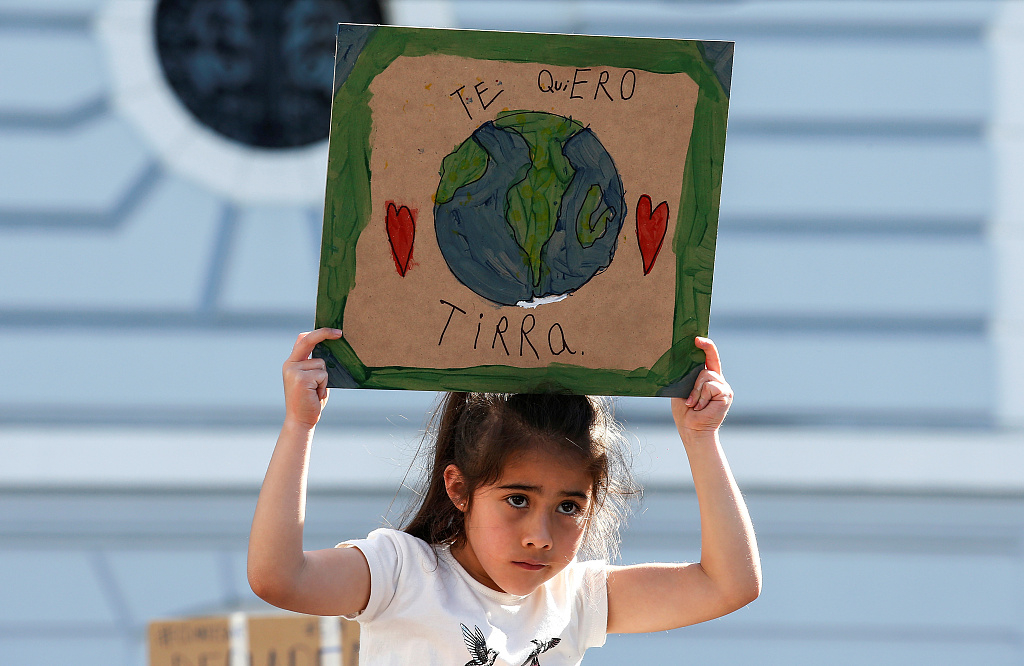Recent events have residents in New Delhi visiting fresh-air bars to access pure oxygen, while in Australia, many are dealing with another mega blaze as a result of extreme heat.

The sign reads: "I love you Earth." A girl takes part in a protest against climate change ahead of the 2019 United Nations Climate Change Conference also known as COP25, in Valparaiso, Chile, September 27, 2019. (Photo: VCG)
Is climate change to blame? Behind the oxygen purchases and risk of lost homes, the implications can have massive on the economic and social lives of people around the world.
Though climate change has always existed, in 2015, countries agreed to limit global temperature rise within two degrees Celsius under the Paris accord. This year's COP25, which is currently underway in Spain, is trying to come to a global consensus on developing a global carbon market.
United Nations Secretary-General Antonio Guterres claimed that the world is at "a point of no return" to meet the climate goals at the opening session of COP25 on December 3.
In China, people start to discover that climate change goals can be achieved along rising GDP or rising economy.
"Continued growth at this level of pollution and resource inefficiency is impossible in China," said Robert Rubinstein, founder of the Triple Bottom Line Investment Conference. "We are taxing labor, but not products that are environment damaging," Rubinstein said.
He is a pioneer in impact investment, which focuses on investing in green and socially-responsible companies. He told CGTN that in China, the voice of this community is not strong enough. But with more Chinese business owners starting to realize that impact investment is not just a charity gesture, they are looking for massive resource efficiency beyond returns.
While big political or industrial powers are trying to transition to a carbon-neutral future, putting vulnerable communities on the front to bear the burden of this transformation is not a sustainable strategy.
Founder of the Global Green Economic Forum, Christina Lee is focused on making sustainable development a priority. "The economic development is out of the sync of the natural support system of earth. Sustainability is basically about industry transformation, which means the resource revolution actually means a big business opportunity," said Lee. Her forum is focusing on integrating green resources in China and Southeast Asia, introducing advanced technologies and talents from Europe to beef up sustainable innovation among startups.
"We can work together towards a carbon-neutral world that is in a more balanced shape. It is the big corps and organizations who must pay and bear the costs of this transition by relying on technologies and human resources, which can ultimately lead to a fairer and more functional sustainable system," said Lee.


